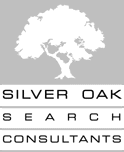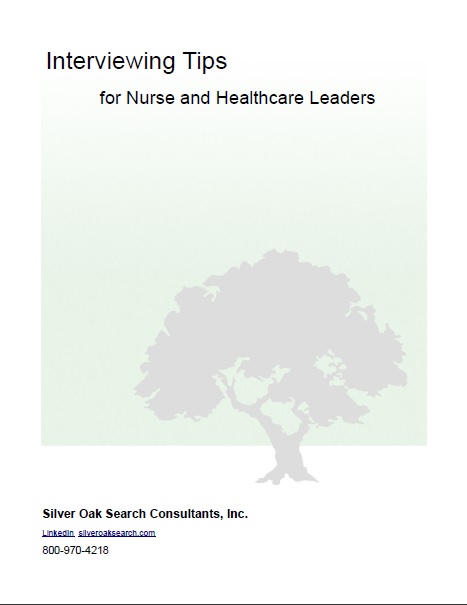This paper provides a broad range of interviewing tips for nurse executives and healthcare leaders.
Today’s healthcare environment is undergoing a period of transformational change. Many new and unanticipated challenges have emerged as a result of these changes. Your ability to thrive in the resulting chaos is critical. Therefore, it’s essential during today’s healthcare interview that you demonstrate your ability to adapt proactively and rapidly in these conditions.
One of the most important interviewing tips is that an interview is a value building process. It begins with the preparation of your resume and continues through conversations with your prospective employer. How well you do is based on how well you prepare.
The interviewing tips in this paper include a wide range of suggestions:
- How to research your prospective employer,
- An overview of interview questions to ask and answer,
- How to prepare for and handle phone interviews and on-site visits,
- How to handle not being selected,
- Your resignation, and
- The best way to avoid a counteroffer.
Your Accomplishments as a Story
Your success as an interviewee can be highly improved if you remember that you are telling a story. The only person who can tell the story effectively is you.
Many people in healthcare do not “sell” their professional strengths, leadership skills or other aspects of their background during an interview. Moreover, most are reluctant to claim individual achievement for results that emerged from a team effort. However, it isn’t bragging if you present your accomplishment as a story of your contribution as part of a team. You need to explain your achievements and contributions to a prospective employer to get the job.
From Resume to Interview
The interview is your opportunity to have a broader discussion about the accomplishments introduced in your resume. You will be able to describe in greater detail the exact situation you encountered, the goals you had to achieve and the barriers you had to overcome. Finally, you can discuss the actions you took and your results.
Your resume might include this type of example:
“Designed and implemented a $3.5 million, 14 Suite, Surgical Services Department, worked with architect and hospital operations, purchased new equipment and trained staff during the lay-off of my VP & CFO. The project was on time, under budget, without any staff turnover.”
The interview is the time to fill in the details not included in your resume. It’s time for you to launch into an attention-grabbing story that is concise, compelling and demonstrates your leadership skills and highlights your accomplishments.
In addition, do not forget that the manner in which you present yourself during the interview has as much impact as your resume, educational background and experience.
Finally, remember that the outcome of an interview is not personal. It’s a business decision whether or not you are offered the job, and not a reflection of your self-worth.
It is the responsibility of the organization to hire someone who is a near-perfect cultural fit and results-driven, with the expertise to address current challenges, and the creativity, flexibility and strategic vision needed to ensure the future success of the organization.
Interviewing Tips
Preparation for the interview is one of the most important things you can do. Being well informed about the prospective organization and its people demonstrates that you made an effort to learn about them. Most importantly, it demonstrates you are serious about their opportunity.
Conducting research in advance of the interview enables you to have more meaningful conversations and save valuable time during the interview.
Use any resources at your disposal to learn about the organization, its history, people, community and future plans.
This a short excerpt from the 19 page paper Interviewing Tips for Nurse and Healthcare Leaders.
Get Your Copy by Email Now
(We will never sell, give away or spam you.)

